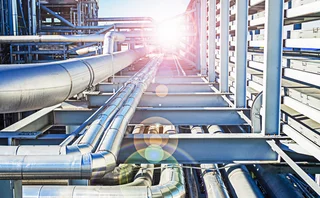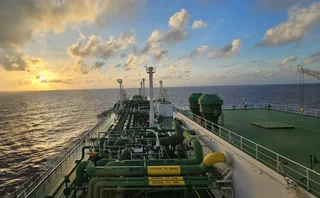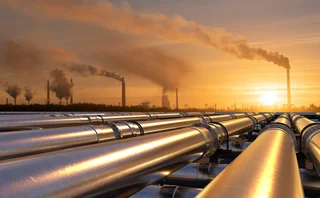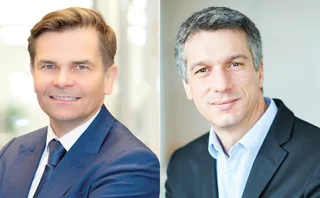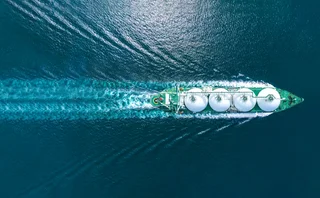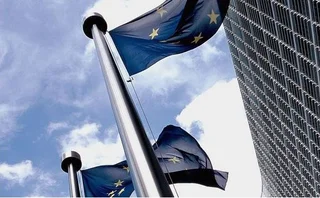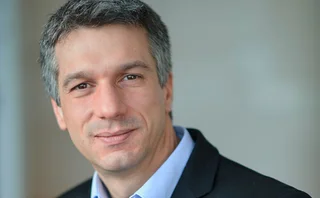Russian gas exports to Europe “seven times less” after pipeline closures
Speaking at a London press conference Medvedev said that the flow to Europe had dropped from 225 million cubic metres to 40 million cubic metres.
The shutdown has been verified by Austrian and Slovakian transport operators, according to Medvedev, who warned that the falling pressure in transit pipelines combined with freezing temperatures across central Europe was creating significant physical risk to pipeline infrastructure.
"The situation continues to deteriorate, though we're doing everything to avoid problems in pipelines and at compressor stations," said Medvedev. "It's now not just a question of commercial risk but also technological risk. We are facing this challenge together with our European partners. We have all become hostages of the transit company [Ukraine's Naftogaz]. Our engineers are working with our European colleagues to ensure the gas transport system will continue to function but conditions are not easy."
Medvedev stated that alternative transport routes through countries like Belarus were now at full capacity. European countries such as Turkey and Romania reported huge cuts in gas imports received from Russia, while Naftogaz stated that Germany and Poland were among other importers likely to be affected.
Austria's OMV, meanwhile reported a 90% reduction in Russian flows through its Baumgarten hub, through which approximately one third of Russia's annual gas exports to Western Europe travel. 51% of Austria's 8bcm annual domestic consumption comes from Russia, and shortfalls in gas deliveries to Austrian end users are being filled by gas from storage.
Despite Gazprom's claims, Naftogaz stated that Russia was to blame for the reduction in supplies. Naftogaz stated that "in a case where European users receive less volumes of natural gas, all claims must be directed to Gazprom", adding that Gazprom "has deliberately refused the implementation of its obligations to its European partners".
EU officials have moved to end the dispute, with delegations today meeting with Gazprom and Naftogaz officials. However, Medvedev said today: "We don't need intermediaries in commercial negotiations."
More on Gas/LNG
Energy Risk Europe Leaders’ Network: geopolitical risk
Energy Risk’s European Leaders’ Network had its first meeting in November to discuss the risks posed to energy firms by recent geopolitical developments
Energy Risk US Leaders’ Network: tackling volatility
Energy Risk’s inaugural US Leaders’ Network convened in Houston in October to discuss risk management challenges caused by geopolitical upheaval, policy uncertainty and volatility
LNG trading strategies set to change amid major market shifts
The global LNG market is on the brink of significant changes set to alter trading dynamics and market behaviour, say analysts
Energy Risk at 30: Learning from the past
Energy Risk looks back at the seminal events and developments that have shaped today’s energy markets
Natural gas/LNG house of the year: ENGIE
Energy Risk Awards 2025: Energy firm signs a string of innovative deals in established and fledgling gas markets
Natural gas/LNG house of the year: ENGIE
ENGIE continues to expand its services to better serve firms in Apac dealing with the challenges of energy risk management and supply
Market shrugs off EC’s plan to change gas benchmark
Dutch TTF prices unmoved, as market participants say they are “not taking it seriously”
Natural gas/LNG house of the year: Engie
Energy Risk Awards 2021: In a volatile market Engie continued to grow its gas and asset management businesses

